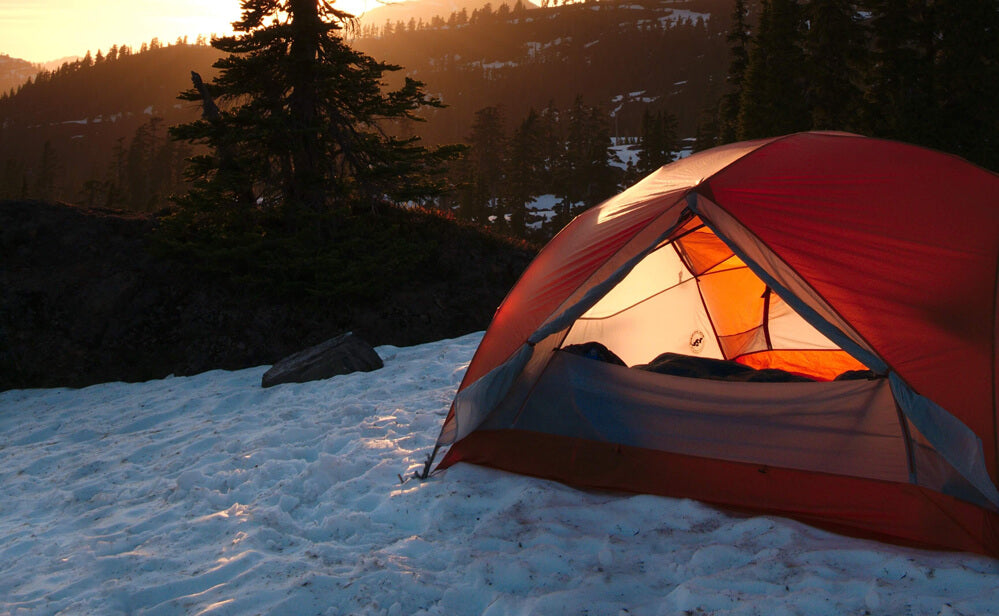If you’re planning on taking a camping trip in cold weather you need to ensure you’re properly prepared, lest you find yourself craving to be home by nightfall. Fortunately, many solutions have been invented for all the problems that cold weather can present. Don’t get caught out in the cold without these essentials.
The Right Sleeping Bag
You may not have realised that the sleeping bag that carried you through the summer is unlikely to cut it in winter. Not every sleeping bag is made for very cold temperatures. You may not have known this, but all sleeping bags should have a temperature rating and season rating and getting the right one for the job means a world of difference in comfort. If you know the temperature is going to drop to freezing, a 4 season bag is the way to go. Take note that the sleeping bag will work best when combined with the right bedding accessories.
The Right Tent
Different climates require different tents but these differences don’t only go as far as summer-ready and winter-proof tents. In fact, there is a plethora of choice just focusing on the different levels of cold weather you might come across. Some tents work for the harsh conditions of the Arctic but if you are not looking to survive such extreme temperatures then these tents will actually be too warm and likely needlessly heavy. What you can realistically carry will limit the size and weight of the tent you take with you.
Waterproof Map
Adventuring out into new territory? Don’t let your ability to navigate dissolve in the rain! You can find waterproof paper which any map can be printed onto, which is worth having when out exploring so that the weather doesn’t slow you down. This way you don’t need to worry about handling your phone in the rain, assuming you can find any signal in the first place.
Waterproof Notepad
At home, at work, whether taking notes in a business meeting or keeping score in a game, there are many things we need to jot down in the moment. Camping is no different in its capacity to require or inspire note taking and when there is the possibility of being rained on or surrounding by dampness, there is no use trying in vain to write on soluble paper so consider picking up a waterproof notepad. Diary keeping, logging sightings or sketching animals, trees and landscapes, keeping track of supplies are all uses while on the move, but you may even want to come prepared with some notes or lists made beforehand to assist you when you reach your camping site. Don’t allow your preparations to become doused in weather before they become any use!
Suitable Apparel
Comfort is key and a lack of proper apparel in the winter season leads to a total lack of comfort. Layering is the name of the game and these layers should ideally include a bottom layer which is breathable, allowing sweat to escape, followed by an insulating layering and finally a windproof ‘shell’ layer. Don’t forget to manage your extremities as well as a scarf and hat will make the outside cold and wind much more forgiving. Finally, thick woolly socks should always be the sock of choice whether out traversing or tucking into your sleeping bag for a good night’s sleep.
Waterproof Footwear
There’s a wide range of boots out there made with different climates in mind, and winter boots are a must-have when camping in cold weather. Whether facing a cold, wet terrain or several inches of snow, there are leather boots out there that are not only waterproof and wind-resistant, but breathable too. This means that they will not only protect your feet from the elements but be comfortable too. Please note that not all leather boots are suitable for cold-weather use and even those that are, need to be properly looked after if they are to perform reliably.
Lights
Whether it be in a tent, bivvy, hammock or wild camping, spending the night under stars can be potentially dangerous, especially once it gets dark. Building a fire (if you are allowed to) and gathering around it is a big part of camping, however, we would always recommend bringing some kind of torch be it a head torch or hand held, matches and firelighting kit or a hanging electric lantern along too. Many modern torches are LED's and electric lanterns come with rechargeable batteries, so make sure their power packs are fully recharged before you head out. If you're relying on equipment that uses non-rechargeable batteries, then it's a good idea to replace them with fresh batteries before you leave home and bring spare batteries along too for good measure.



